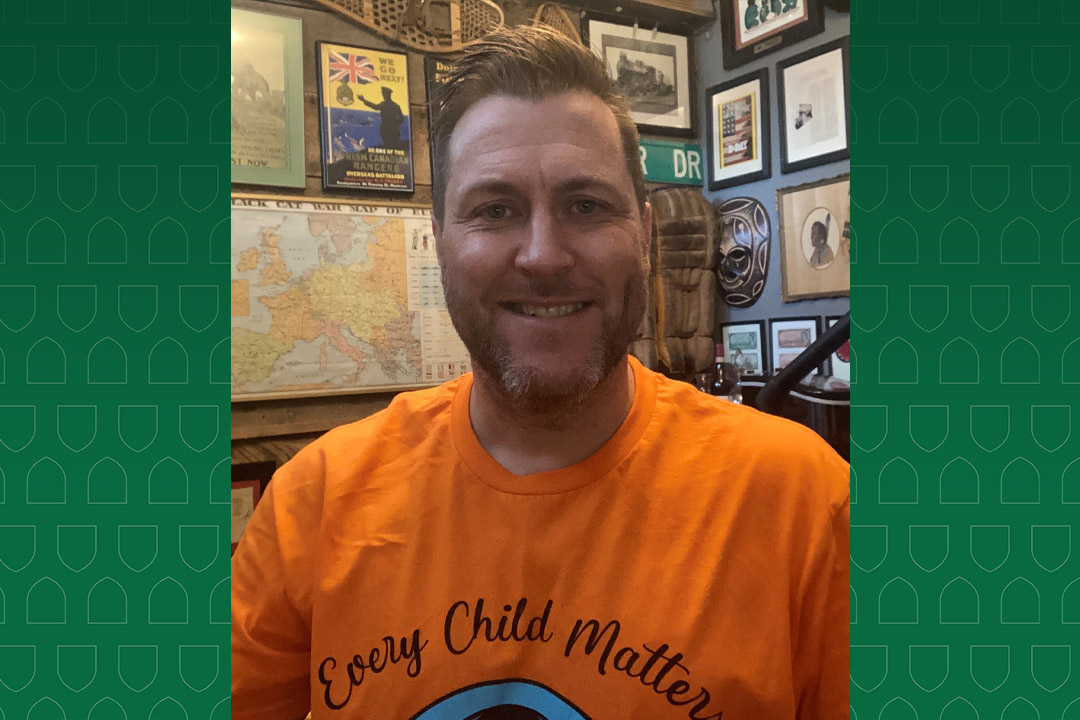
USask HR team initiates anti-racism education program
Keiran Killick couldn’t help but feel more than a little uncomfortable when he first began anti-racism education at the University of Saskatchewan (USask).
By James Shewaga“Let’s be honest, I’m the middle-aged white guy in the room, so my demographic is kind of the problem here, so I was a little bit nervous going in,” Killick recalled. “But the facilitators of that program were quick to point out that everyone had a role to play in moving this along. And when I heard that, I kind of dropped my fear and knew I belonged here.”
Killick, manager of human resources advisory services at USask, and his colleagues have taken what they learned in that College of Nursing-led program and initiated their own anti-racism education program for their 24-member team, including labour relations specialists and the strategic business advisors (SBAs) who are working across all colleges, schools and units across campus.
“One thing that resonated with me early is hearing that this work shouldn’t have to be the responsibility of colleagues who are Indigenous, Black, or People of Colour,” said Killick. “This education shouldn’t have to fall to those who have experienced racist actions or have been excluded. If anything, it should land with those of us who haven’t experienced those things. It should be our responsibility to take the lead on this and change things for the better. So, that’s where I kind of got the confidence to say we can do this with our own team.”
Killick’s team is now halfway through an eight-session anti-racism education program that is similar to what USask’s senior leaders are currently engaged in, headed by Dr. Verna St. Denis (PhD) - special advisor to the president on anti-racism and anti-oppression - and Liz Duret - USask’s senior diversity and inclusion consultant.
“We connected with Liz and Verna and asked if we could do this and they said go for it,” said Killick. “So we have taken similar content and tried to make it very relevant to our group. What senior leadership is going to talk about might be the same, but the actual boots-on-the-ground conversations for us may feel different because we interact in a different world than senior leaders so, and that is just the nature of the role. So, we have tried to customize or create our anti-racism training to fit our group, but stay consistent with the messaging that the university has adopted.”
Killick said the education sessions have opened the door to having difficult - but necessary - conversations and self-examination in relation to the issues that his team deals with in support of employees across campus.
“It was bit scary at first, because it can be a very difficult topic, but I think our team has also been up for it, too,” he said. “Some awkward conversations for sure, but we knew that going in. I think it helps being in a room full of people that you trust because we all work so closely together. We’re not asking them to be experts because not everyone is comfortable with this. We just ask them to be honest and open and embrace it, so that we can apply the concepts to our world.”
Killick said his team is committed to raising understanding and identifying how they can better support anti-racism initiatives at USask and incorporate that in their daily work.
“The biggest benefit is awareness,” he said. “A lot of us who work in our world do so without that knowledge of the history of what people who have experienced racism go through. We are not going to have all the answers, but at least we can bring this to the forefront of our work and focus on the things that we can influence. I wouldn’t want to speak for the group collectively, but I think it has gone very well. Everyone has been on board and engaged, and we have had good feedback.”
Looking forward, Killick said his group is determined to address inequality by removing barriers to recruitment and retention, and improve diversity and inclusion for faculty and staff across campus.
“When we look back a year from now, we will be able to say that we have made progress,” said Killick, who is co-facilitating the monthly anti-racism education sessions with colleagues Clay Benaschak, Cara Banks and Brittany Schell.
“From the employment side, who is not joining our campus because they feel unwelcome? Are we putting up unintentional barriers? How do we attract talent, how do we train and support them? How is conflict handled? These are all areas that we can take a look at, through an anti-racism lens, to create a more welcoming work environment.”
Article re-posted on .
View original article.
